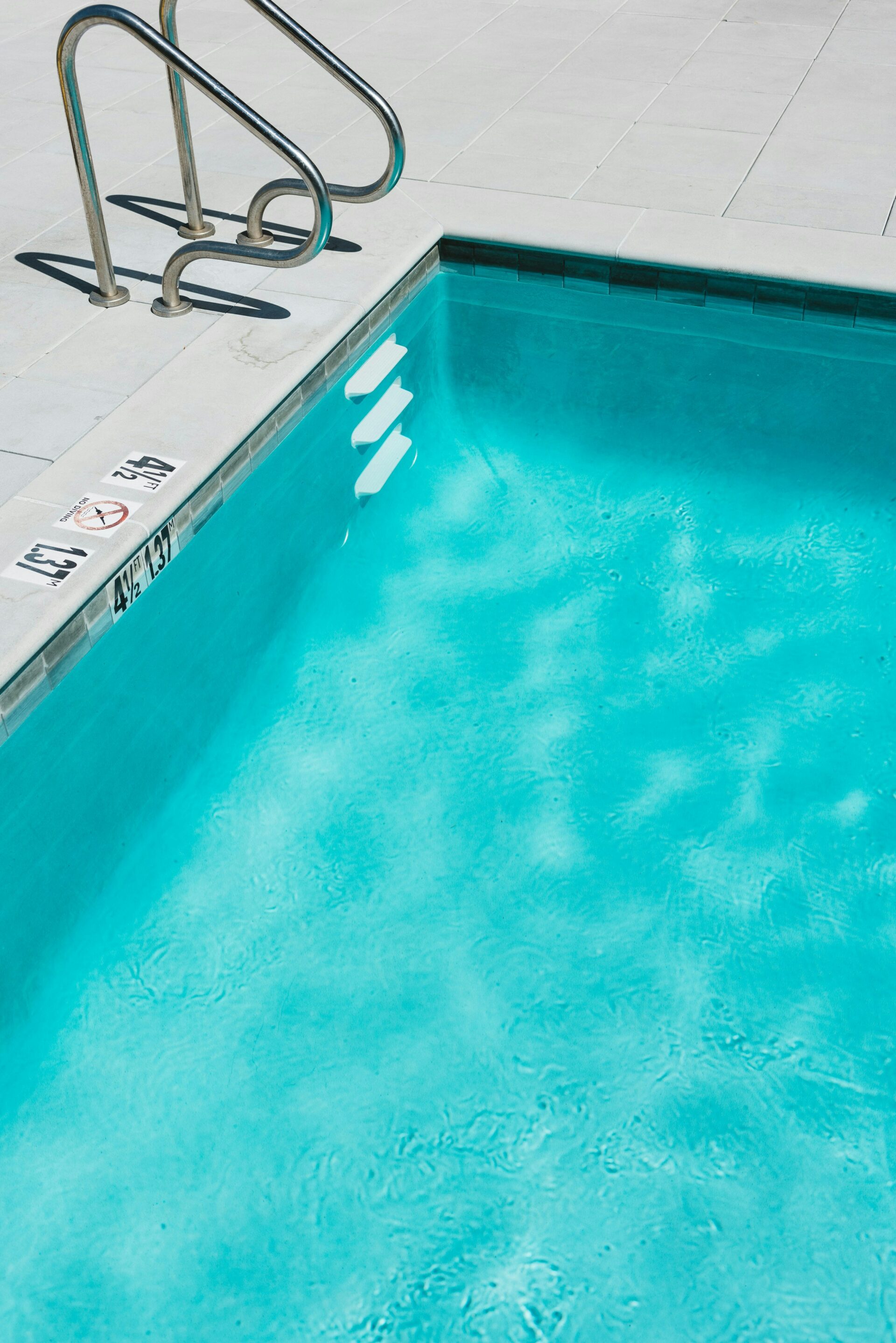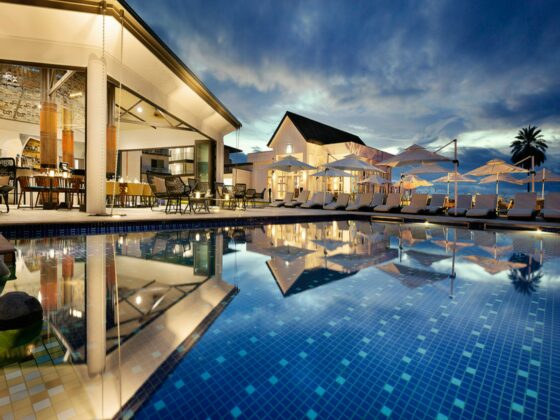
The hospitality industry is undergoing a transformation, with high-end travelers increasingly looking for accommodations that align with their environmental values. A 2024 report found that 75% of travelers want to make more sustainable choices when they travel, and hotels that prioritize eco-friendly initiatives are gaining a competitive edge.
Luxury hospitality brands are responding by integrating sustainability into every aspect of the guest experience, including their pools. Traditionally known for their high water and energy consumption, pools are being transformed into smart, efficient, and eco-friendly features that reflect a hotel’s commitment to responsible tourism.
Key Innovations in Smart, Eco-Friendly Pools
The latest advancements in pool technology are making it possible for hotels to reduce their environmental impact without compromising on guest satisfaction. Some of the most impactful innovations include:
- Automated filtration and water conservation. Smart filtration systems optimize water usage, reducing the need for frequent draining and chemical treatments. Some systems even use natural filtration techniques, such as biofilters, to keep pools clean with minimal intervention.
- Energy-efficient heating solutions. Solar pool heating and geothermal energy are replacing traditional gas heaters, significantly cutting down on fossil fuel consumption. By harnessing renewable energy, hotels can maintain comfortable water temperatures while reducing operational costs.
- AI and IoT integration. Smart sensors continuously monitor water levels, pH balance, and chlorine levels, adjusting them automatically for optimal efficiency. These systems help reduce waste, improve water quality, and minimize maintenance requirements. However, even with automation, many hotels still rely on professional pool cleaners to ensure water quality and equipment efficiency meet the highest standards.
- Eco-friendly pool materials. Many hotels are opting for sustainable construction materials, such as recycled glass tiles and nontoxic sealants, to reduce their environmental footprint. Some even incorporate natural pools that use plants and biological filters instead of chlorine-based chemicals.
With these innovations, pools are no longer just an aesthetic feature — they’re a testament to a hotel’s commitment to sustainability.
The Business Case for Smart Pools in Hospitality
Beyond environmental benefits, investing in smart, eco-friendly pools offers significant financial and branding advantages for hotels and resorts:
- Operational cost savings. Energy-efficient systems reduce water and electricity bills while extending the lifespan of pool equipment, leading to long-term savings.
- Sustainability certifications and compliance. Many properties are seeking certifications such as LEED, Green Key, and EarthCheck to strengthen their sustainability credentials. Smart pools help meet these rigorous standards.
- Guest experience and brand reputation. Travelers are willing to pay a premium for eco-conscious accommodations. A well-maintained, smart pool enhances guest satisfaction and reinforces a hotel’s position as a forward-thinking, responsible brand.
Future Trends and Industry Adoption
As sustainability regulations tighten and consumer expectations shift, the demand for smart, eco-friendly pools will only grow. Industry experts predict the following trends:
- AI-driven pool monitoring. Predictive analytics will allow hotels to anticipate maintenance needs, reducing downtime and optimizing resource use.
- Sustainable tech partnerships. Hotels will increasingly collaborate with green tech companies to integrate the latest energy-efficient innovations.
- Regulatory pressures. Governments and industry bodies may introduce stricter water and energy usage guidelines, pushing more properties to adopt sustainable pool solutions.
The Future of Sustainable Pools in Hospitality
Smart, eco-friendly pools represent the perfect blend of luxury and sustainability, making them an essential investment for forward-thinking hotels. By embracing these innovations, hospitality leaders can enhance guest experiences, achieve sustainability goals, and stay ahead of industry regulations.
As traveler preferences continue to evolve, eco-conscious amenities will no longer be optional — they’ll be expected. Hotels that integrate smart pool technology today will not only reduce their environmental impact, but also secure their place as leaders in sustainable hospitality.
Key Steps for Hospitality Leaders
- Assess current pool operations. Identify areas where energy and water efficiency can be improved.
- Invest in smart pool technology. Implement AI-driven monitoring, automated filtration, and renewable energy heating solutions.
- Pursue sustainability certifications. Align with programs like LEED and Green Key to boost credibility.
- Monitor guest preferences. Track demand for sustainable amenities and adjust offerings accordingly.
- Stay ahead of regulations. Prepare for evolving environmental laws to maintain compliance and industry leadership.
By making smart pools a priority, hotels can redefine luxury, deliver exceptional guest experiences, and contribute to a more sustainable future.
ABOUT THE AUTHOR
Austin Gardiner co-founded GL Pools in 2006, bringing a deep-seated commitment to excellence in the pool service industry alongside childhood friend Kyle Lobe. With an NPC Startup certification and having formerly served as the President of his local IPSSA chapter, Austin’s expertise ensures GL Pools upholds the highest standards of service and professionalism. His passion and dedication have been instrumental in establishing GL Pools as a distinguished name in the competitive pool service market.








